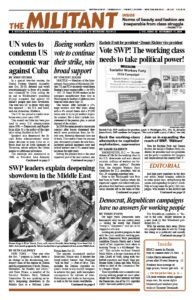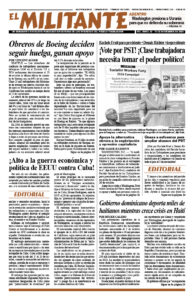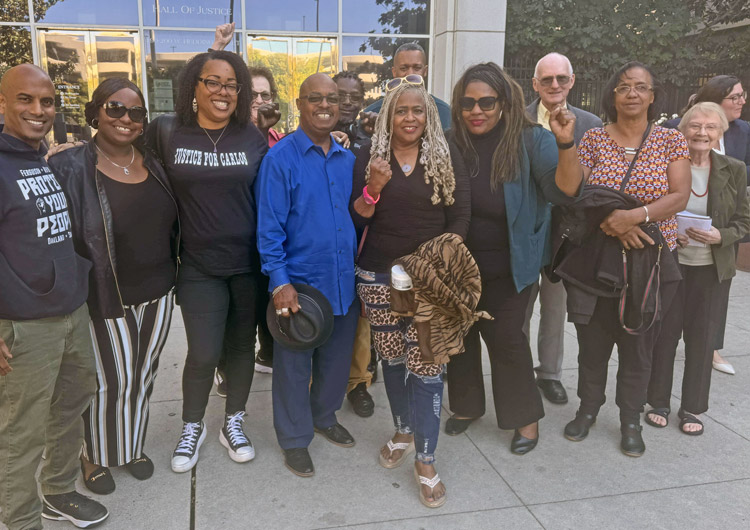SAN JOSE, Calif. — Carlos Harris walked out of Santa Clara County Jail Oct. 22, after having spent 20 years in California state prisons for a crime he did not commit.
“I can’t believe that I’m out!” Harris, 53, exulted outside the jail. Prison life, he told reporters, “is not easy. It’s ups and downs, a lot of hardships, but don’t give up.” He said he was looking forward to returning to work as a barber.
Harris’ release was met with jubilation by family, friends, and others who, led by his cousin Aisha Hampton and mother Rachel Hampton, waged the long public fight to overcome his wrongful conviction in 2005 for robbery and attempted murder.
In a statement Oct. 22, Aisha Hampton thanked “all of you for standing with Carlos during this incredible fight for freedom and special shout out to DeBug, NAACP, the Militant, local media, newspapers and journalists and each and everyone of you that have showed up for Carlos.”
Harris steadfastly maintained his innocence and demanded a jury trial, rejecting prosecutors’ offer of a plea bargain. He was found guilty and sentenced to 14 years and two months in prison. The judge doubled that sentence under California’s infamous three-strikes law that allowed judges to double a sentence if a defendant has prior convictions.
After exhausting avenues to get the unjust conviction overturned, Harris filed for “resentencing” under new legislation enacted last year. It allows a court to review a sentence if it could not be imposed today, and to issue a new, lesser sentence.
But “eligibility” for resentencing must be won in court. The prosecution vigorously opposed resentencing for Harris in a Sept. 26 court hearing full of members of Harris’ family and other supporters. An assistant district attorney — claiming to speak “for the people” — argued that Harris had committed a “heinous” crime, and a jury had convicted him; that his achievements in prison occupational and educational programs were irrelevant; and that the court could not substitute for a parole board review to assess his suitability for release.
Katherine Hallinan, Harris’s attorney, told the court that the district attorney’s harping on the original trial and its outcome ignored Harris’ participation in vocational and other programs as well as the intent of the 2023 statute.
Judge Benjamin Williams ruled Oct. 17 he was “recalling” the original sentence because of “the progress Mr. Harris has demonstrated,” and reduced it by five years. This judgment, along with “credits” Harris had amassed in prison, meant he had served out his sentence. With instructions to report to a parole office within 48 business hours of his release, Harris, the judge said, was free to go.
But the California Department of Corrections and Rehabilitation kept Harris in jail for five more days.
On Oct. 21, the Silicon Valley NAACP and Harris supporters held a press conference outside the Santa Clara County Jail protesting the delay.
“We are calling for Carlos’ immediate release right now,” NAACP board member Lynn Rose, a stalwart in the fight to free Harris, told the press.
Paul Thacker, a longtime friend of Harris, also spoke. “This needs to end for the sake of Carlos, his mom and family,” he told the Militant. “Each day is more abuse.”
News of the judge’s order and the press conference protesting the delay received prominent TV coverage. Harris was released the next evening.
Betsey Stone contributed to this article.


